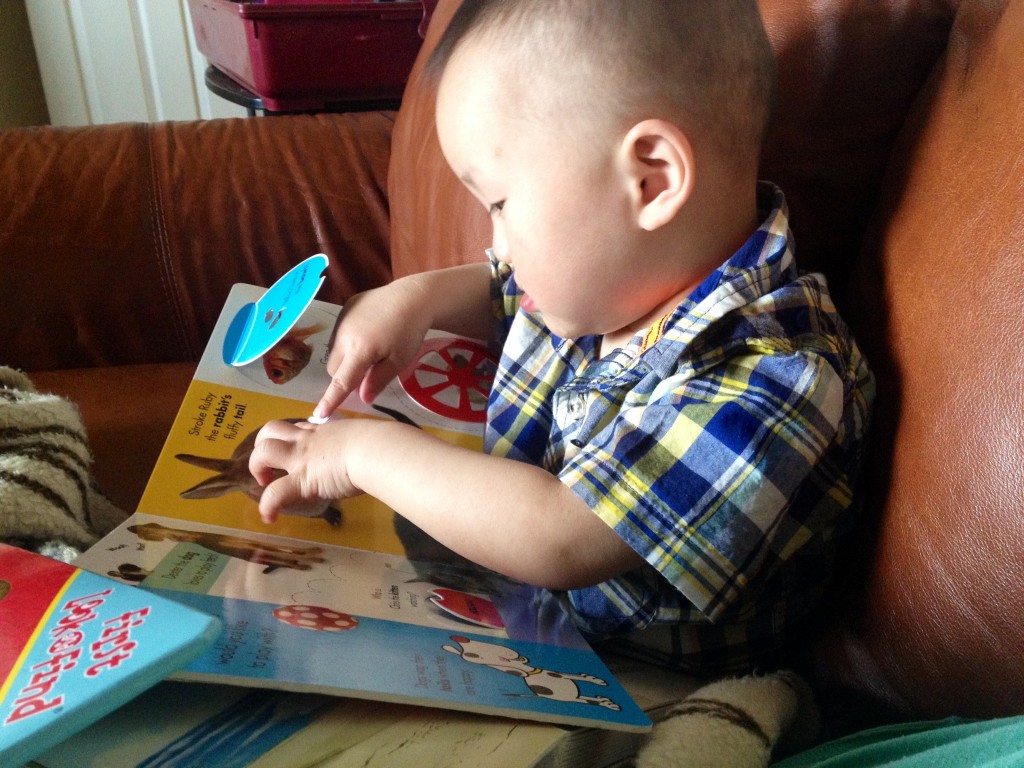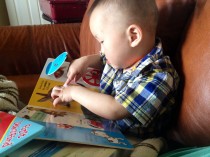Though Little Brother is rapidly (remarkably!) picking up English, we have found it helpful to have a few important Mandarin words and phrases in our back pockets, to assist in communicating with him.

The following list is our Chinese vocabulary, in it’s (pathetic) entirety:
Bu (“boo”) – no
Bu Hao (“boo how”) – not good
Xu Yao (“boo yow”) – no need/don’t want
Xie Xie (“shay shay”) – thank you
Bie Kuqi (“buh coachy”) – you’re welcome
Bung Hao (“bung how”) – all done
Ni Hao (“knee how”) – hello
Zai jian (“sigh shee-yen”) – goodbye
Wo ai ni (“wahl eye knee”) – I love you
Go lai (“go lie”) – come back/came back
Baba (“bah-bah”) – daddy
Mama (“mah-mah”) – mommy
Ponyo (“pawn-yo”) – friend
Di di (“dee-dee”) – little brother
Mei mei (“may-may”) – little sister
Jie Jie (“jay-jay”) – big sister
Laoshi (“Lau-sure”) – teacher
Gou (“go”) – dog
Mao (“mow”) – cat
This is very basic, and probably partially mis-spelled, but it will get you by if/when you travel to China. If you want to know more, let me know and I’ll ask my children. (Not kidding.)
Other tricks to remember:
X printed has a “shh” sound. For instance, the city that our son is from- Xinyang– is pronouned “shin-yawn”.
Zh together make a “j” sound. Zhengzhou, the capitol city in Henan is pronounced “Jen-Joe”.
Words ending in ang would be pronounced “awn”. The letter g is typically silent.
We also found that our son, and several of his peers, had been taught some basic Baby Sign. This could have been due to his cleft lip (repaired) and palate, as many children with that condition have limited or nonexistent speech function. Regardless, it was extremely helpful in the first few days as we struggled to understand each other.


Leave a Reply
You must be logged in to post a comment.